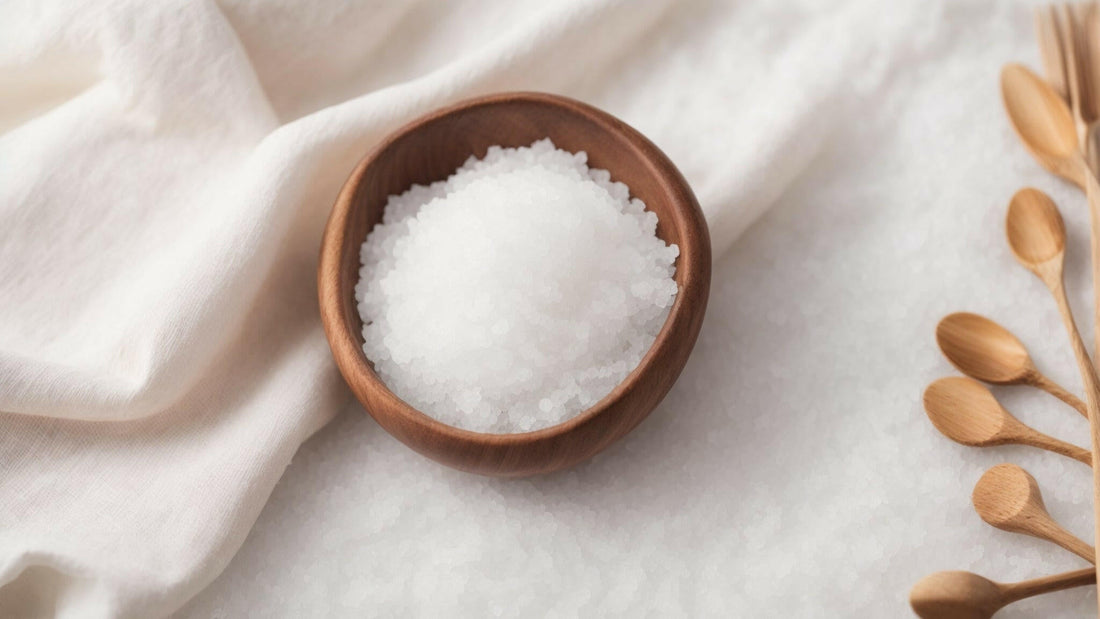
Sodium: An Essential Nutrient with a Fine Balance
Share
Sodium is often viewed negatively due to its association with high blood pressure and processed foods. However, it is actually an essential nutrient that plays a vital role in maintaining fluid balance, muscle contractions, and nerve function. In fact, for athletes and highly active individuals, sodium can be an important tool for performance and recovery. But like all good things, balance is key—too much sodium can lead to significant health risks. Let’s explore the benefits, uses, and potential downsides of sodium in the diet.
Why Sodium Is Essential
Sodium is a mineral and electrolyte that helps regulate:
- Fluid balance: It works with potassium to maintain proper hydration at a cellular level.
- Muscle contractions: Sodium is crucial for muscle function, preventing cramps and weakness.
- Nerve function: It helps transmit nerve impulses, supporting brain and body communication.
- Blood pressure regulation: While excess sodium can raise blood pressure, an adequate amount is necessary for circulatory health.
Sodium for Athletic Performance
Athletes and those who engage in intense exercise lose sodium through sweat. Replenishing sodium is important for:
- Preventing dehydration: Sodium helps retain fluids and prevent excessive water loss.
- Maintaining endurance: Proper sodium levels support prolonged physical performance.
- Reducing muscle cramps: Replacing lost sodium can help prevent painful cramping.
- Balancing electrolytes: Sodium, along with potassium and magnesium, keeps the body functioning efficiently during exertion.
Sports drinks, electrolyte tablets, and sodium-enriched foods are common ways to replenish sodium after strenuous activity. However, options like Replenishing Salt provide a balanced blend of essential minerals without the artificial additives found in many commercial sports drinks.
The Risks of Too Much Sodium
While sodium is necessary for health, excessive intake can lead to problems, including:
- High blood pressure (hypertension): Too much sodium can cause water retention, increasing blood pressure and straining the cardiovascular system.
- Kidney stress: The kidneys regulate sodium balance, and excessive intake can overwork them, potentially leading to kidney disease.
- Increased risk of heart disease and stroke: Long-term high sodium intake is linked to cardiovascular complications.
- Water retention and bloating: Excess sodium can lead to puffiness and discomfort due to fluid buildup in tissues.
Finding the Right Balance
The key is moderation and mindful consumption. The American Heart Association recommends a daily sodium intake of less than 2,300 mg, with an ideal target of 1,500 mg for most adults. However, individual needs may vary, especially for athletes who require higher sodium intake due to sweat loss.
To maintain a balanced approach:
- Choose whole, unprocessed foods rich in natural minerals.
- Use a balanced salt alternative like Replenishing Salt , which provides essential sodium along with potassium and magnesium.
- Read nutrition labels to monitor sodium intake from packaged foods.
- Listen to your body—if you're active and sweating a lot, you may need more sodium, but for a sedentary lifestyle, lower intake is ideal.
The Bottom Line
Sodium is an essential nutrient that plays a critical role in hydration, muscle function, and nerve signaling. For athletes, proper sodium intake can enhance performance and prevent dehydration. However, excessive sodium consumption poses significant health risks, making balance the key to optimal well-being.
Looking for a way to maintain essential sodium intake while supporting overall health? Replenishing Salt provides a smarter, more balanced alternative to traditional table salt. Sign up for our newsletter for low-sodium recipes, health tips, and exclusive product updates!